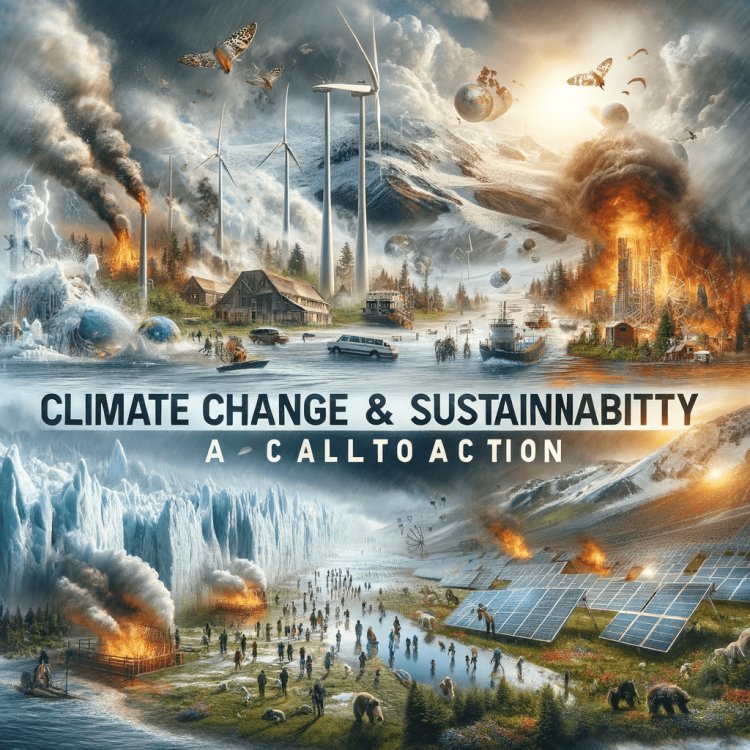Climate Change and Sustainability: A Call to Action
Climate change is no longer a distant concern but an immediate and pressing global issue. The evidence of its impact is all around us, from rising temperatures to extreme weather events and the alarming loss of biodiversity. In this article, we delve into the critical relationship between climate change and sustainability, underscoring the urgent need for sustainable living practices on a global scale.

Climate Change and Sustainability: A Global Imperative
Climate change has emerged as one of the most pressing challenges of our time. The evidence is undeniable, with rising global temperatures, extreme weather events, and ecological disruptions becoming increasingly frequent. In this context, it is essential to emphasize the interconnectedness of climate change and sustainability.
1. Understanding the Climate Crisis: The climate crisis is characterized by the accumulation of greenhouse gases in the atmosphere, primarily due to human activities like burning fossil fuels and deforestation. This results in the trapping of heat, leading to a rise in global temperatures, commonly referred to as global warming.
2. The Urgency of Action: The urgency to address climate change cannot be overstated. The consequences of inaction are dire, including more intense storms, sea-level rise, food and water scarcity, and displacement of vulnerable communities.
3. Sustainable Lifestyles: Sustainability offers a beacon of hope in mitigating climate change. Sustainable living involves adopting practices that reduce our ecological footprint, such as conserving energy, minimizing waste, and embracing eco-friendly transportation options.
4. Renewable Energy Transition: Transitioning to renewable energy sources, such as solar and wind power, is a pivotal step in reducing carbon emissions. The shift towards clean energy not only mitigates climate change but also creates green job opportunities.
5. Eco-Friendly Transportation: Promoting eco-friendly transportation methods like electric vehicles, cycling, and public transit can significantly reduce carbon emissions from the transportation sector, a major contributor to climate change.
6. Sustainable Agriculture: Sustainable agriculture practices, such as organic farming and crop rotation, not only reduce the carbon footprint of food production but also ensure long-term food security by preserving soil quality.
7. Responsible Consumption: Making conscious consumption choices, such as reducing single-use plastics and opting for products with minimal environmental impact, plays a crucial role in sustainability efforts.
8. Biodiversity Conservation: Preserving biodiversity is integral to sustainable living. Protecting ecosystems and wildlife habitats helps maintain the delicate balance of our planet's ecosystems.
9. The Role of Governments: Governments worldwide must enact policies that incentivize sustainability, such as carbon pricing, subsidies for renewable energy, and regulations that promote eco-friendly practices.
10. The Importance of Education: Educating the public about climate change and sustainability is key. Knowledge empowers individuals and communities to make informed decisions that benefit both the environment and society.
11. A Collective Responsibility: In conclusion, climate change and sustainability are inextricably linked. Addressing the climate crisis requires a collective effort from individuals, businesses, governments, and organizations. By embracing sustainable practices and working together, we can combat climate change and ensure a more resilient and prosperous future for our planet.
What's Your Reaction?




















